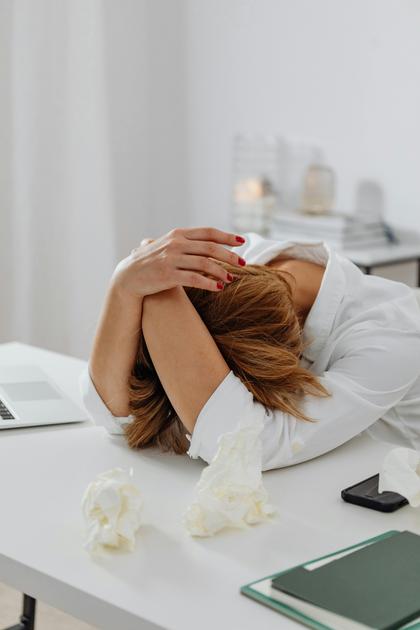Have you ever struggled with deep sleep due to certain evening habits? Many women, especially those over 30, face this issue daily. Balancing work, family, and personal time can make it challenging to wind down at night, ultimately impacting your sleep quality. In this article, we explore common evening habits that might be keeping you awake and how to create a serene nighttime routine.
Understanding Deep Sleep and Its Importance
Deep sleep is a crucial part of our sleep cycle, characterized by slow brain waves and a significantly reduced heart rate. This state of sleep is vital for various bodily functions, including physical recovery, mood regulation, and cognitive function. For women, deep sleep is especially important, as it helps in counteracting stress-induced hormonal imbalances.
During deep sleep, the body repairs and regrows tissues, builds bone and muscle, and strengthens the immune system. Without adequate deep sleep, we may wake up feeling unrested and cranky, facing an uphill battle with fatigue throughout the day.
Common Evening Habits That Disrupt Sleep
Certain evening habits can significantly hinder your deep sleep. Awareness is the first step toward improvement. These habits frequently go unnoticed but can create a substantial barrier to a restorative night’s sleep. Here are some common culprits:
- Heavy Meals Close to Bedtime: Eating large, rich meals can disrupt digestive processes, keeping you awake.
- Alcohol Consumption: While it may seem to relax you, alcohol can interfere with the sleep cycle.
- Irregular Sleep Schedule: Going to bed and waking up at different times can confuse your body’s internal clock.
- Engaging in Stimulating Activities: Activities that are mentally or physically energizing can keep your mind active.
The Role of Technology Before Bedtime
Technology is intertwined with our daily lives, but its presence at bedtime can lead to disrupted sleep patterns. The blue light emitted from screens can interfere with melatonin production, making it difficult to fall asleep.
Consider creating a technology-free zone before bedtime. This means setting aside phones, tablets, and laptops at least an hour before sleep. Instead, engage in a relaxing activity like reading a book or practicing gentle yoga.
How Stress and Anxiety Affect Your Sleep
Stress and anxiety are common issues, especially for women juggling multiple roles. When under stress, your body enters a state of hyperarousal, making it incredibly difficult to relax when it’s time to sleep.
It’s essential to find methods to manage stress effectively. Consider practicing deep breathing, journaling your thoughts, or simply reflecting on the day. Acknowledge your feelings, and remember, it’s okay to seek help if it gets overwhelming.
Foods to Avoid in the Evening
The foods you consume in the evening can have a significant impact on your sleep quality. Here’s a brief list of foods to avoid:
- Caffeine: Found in coffee, tea, and chocolate, caffeine can keep you awake.
- Sugary Snacks: Sugars can lead to energy spikes and crashes, affecting your sleep.
- Spicy Foods: They can cause discomfort during the night.
- Heavy Proteins: Foods like steak take longer to digest and may disrupt sleep.
Instead, opt for light snacks like a banana or a small bowl of oatmeal, which can promote sleep.
Creating a Relaxing Nighttime Environment
Creating a soothing bedtime environment is essential for achieving deep sleep. Here are some tips to enhance your nighttime sanctuary:
- Dim the Lights: Use soft lighting to signal to your body that it’s time to wind down.
- Maintain a Comfortable Temperature: A cool room, around 60-67°F (15-19°C), is ideal for sleep.
- Incorporate Calming Scents: Consider using calming scents like lavender or chamomile.
- Keep Your Space Organized: A tidy environment can ease a cluttered mind.
Establishing a Consistent Sleep Schedule
Consistency is key to promoting better sleep. Going to bed and waking up at the same time every day helps regulate your body’s internal clock.
Even on weekends, try to maintain your schedule. This practice will help you feel more alert during the day and ensure a more restful night.
Mindfulness Practices for Better Rest
Incorporating mindfulness into your evening routine can significantly enhance your sleep quality. Mindfulness practices such as meditation and gentle stretching can calm your mind and prepare your body for sleep. Start with a few minutes of focused breathing, allowing your thoughts to settle before bed.
This evening ritual can be a game-changer for those dealing with insomnia or anxiety. As you cultivate this practice, you may find more peace and improved sleep.
How Evening Caffeine Harms Sleep Quality
Caffeine is a common stimulant found in many evening beverages, including coffee and certain teas. For women, consuming caffeine in the late afternoon or evening can significantly disrupt sleep.
To enhance sleep quality, consider reducing caffeine in the latter part of the day. Switching to herbal teas or warm milk can be a comforting alternative that promotes relaxation.
Empowering Yourself for Better Sleep Solutions
As you reflect on these evening habits, understand that empowerment is essential. Recognizing the lifestyle patterns influencing your sleep is the first step toward transformation. You have the power to make changes, big or small, that can improve your sleep quality.
Discover how many women are finding solutions without heavy medications and embrace a custom-tailored approach to your well-being. Start identifying your evening habits and implement gradual changes for a better night’s sleep.
Remember, it is possible to overcome sleep challenges, just like many other women have done!







